Find the programme that meets your requirements and aspirations.
Apply nowEvents
SPJIMR CISD hosts CII Roundtable, “Agri Digital Technology: The Segway to Agricultural Prosperity”
August 26, 2023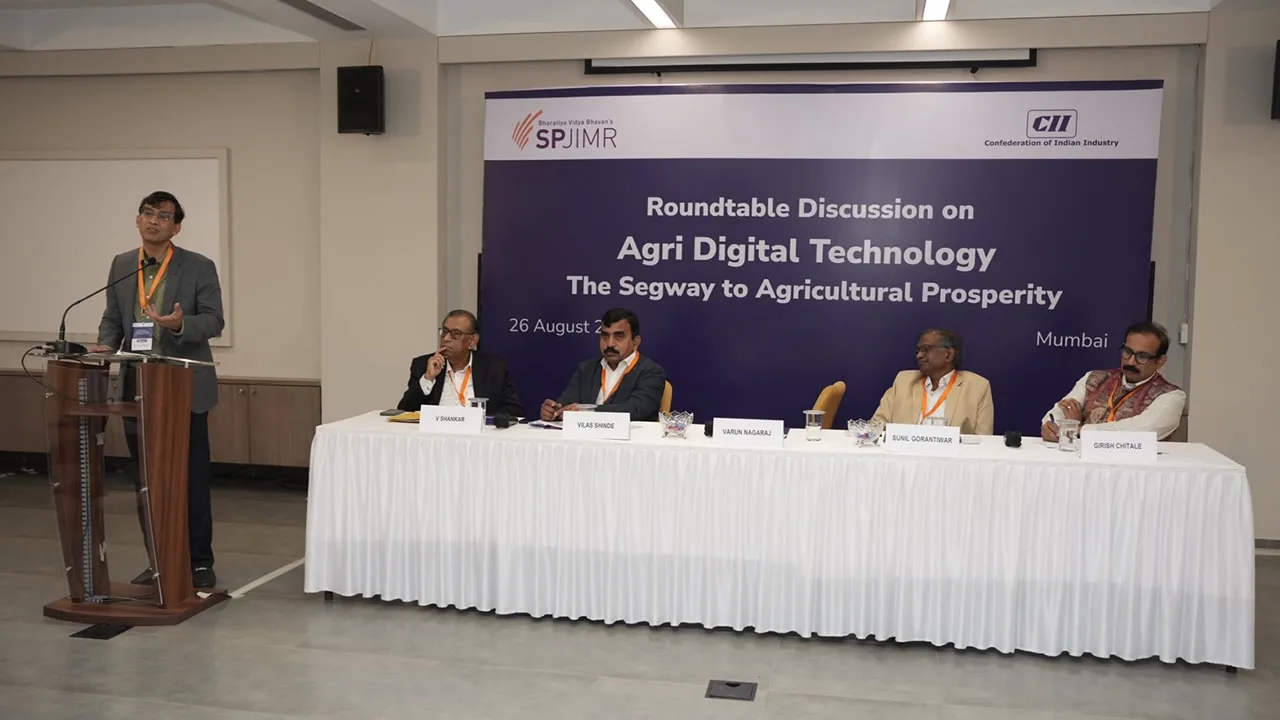
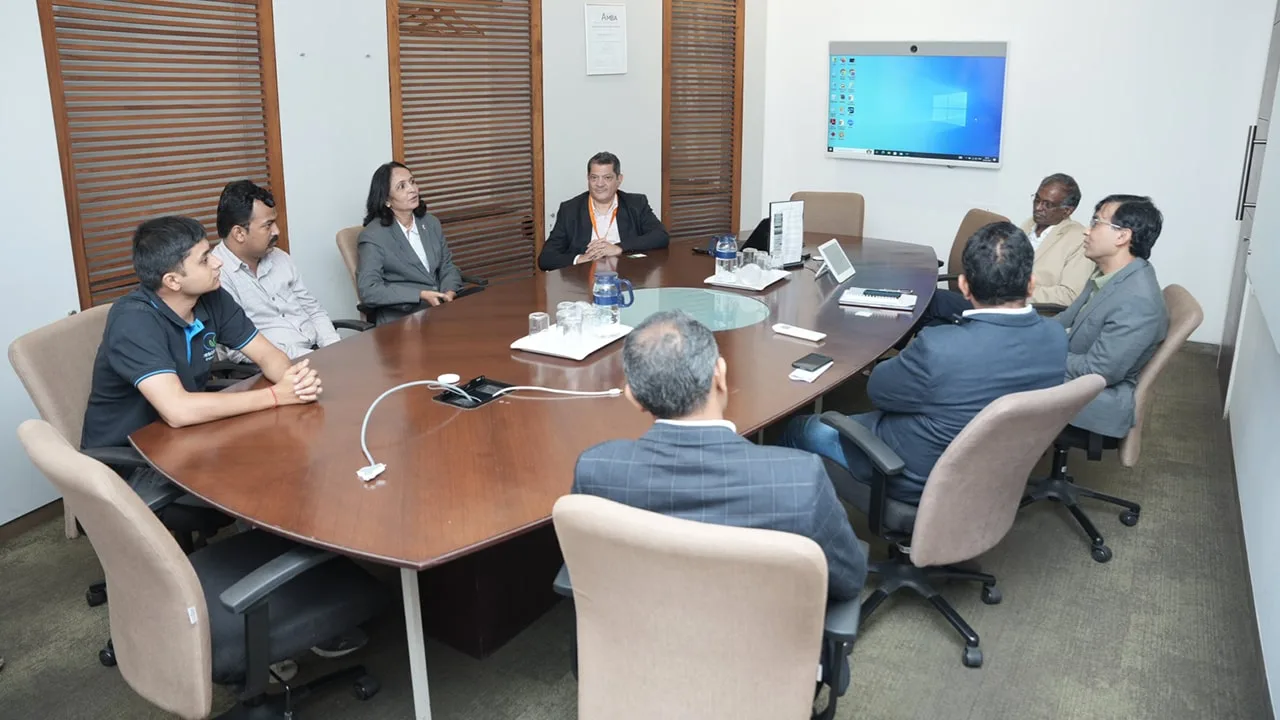
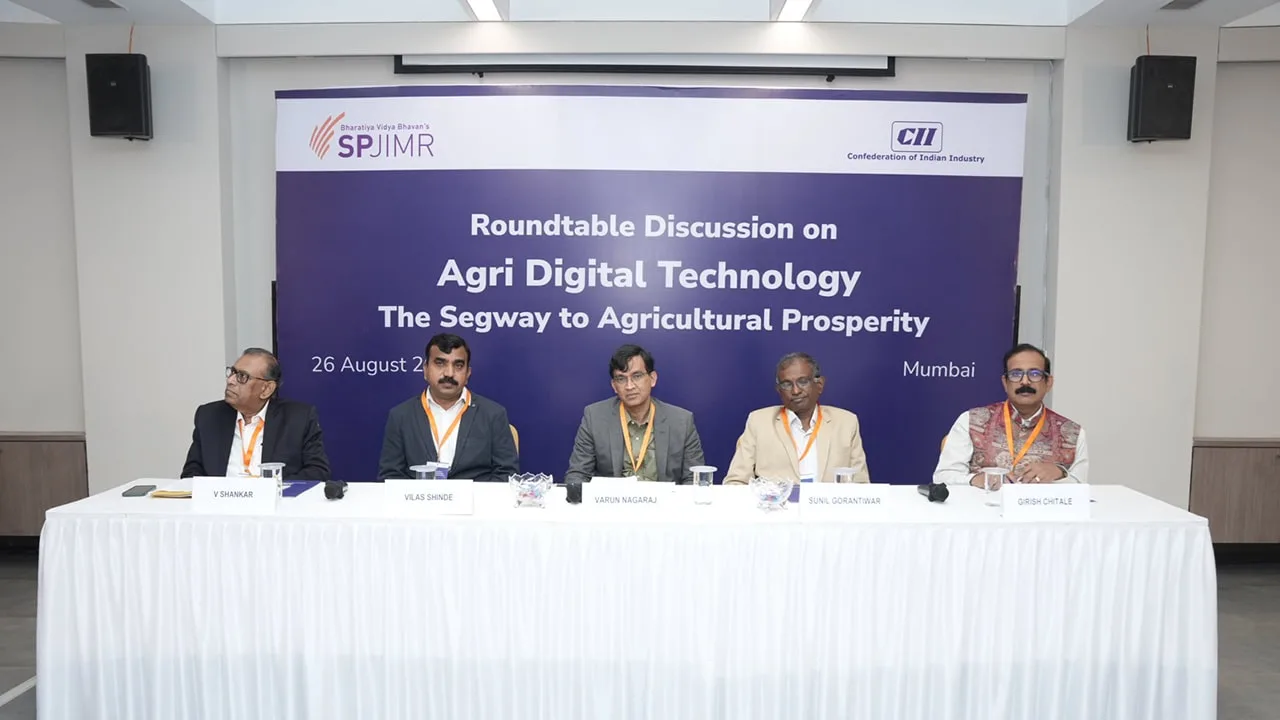
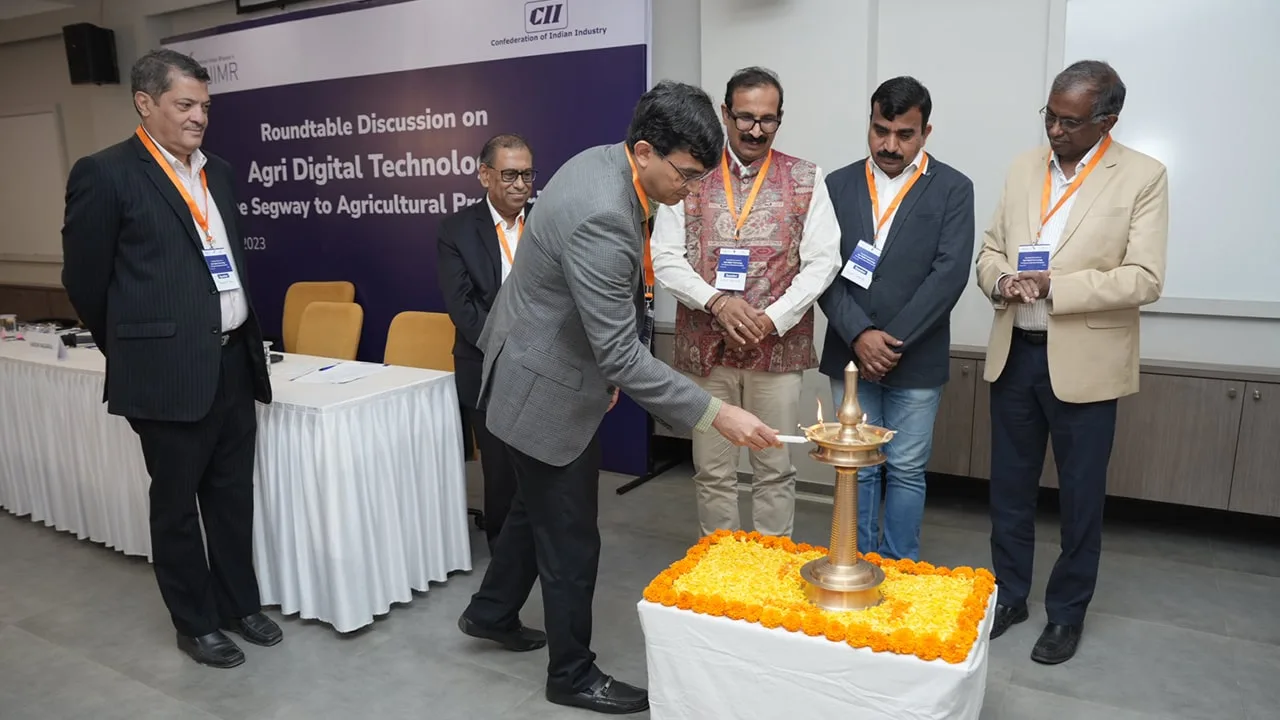
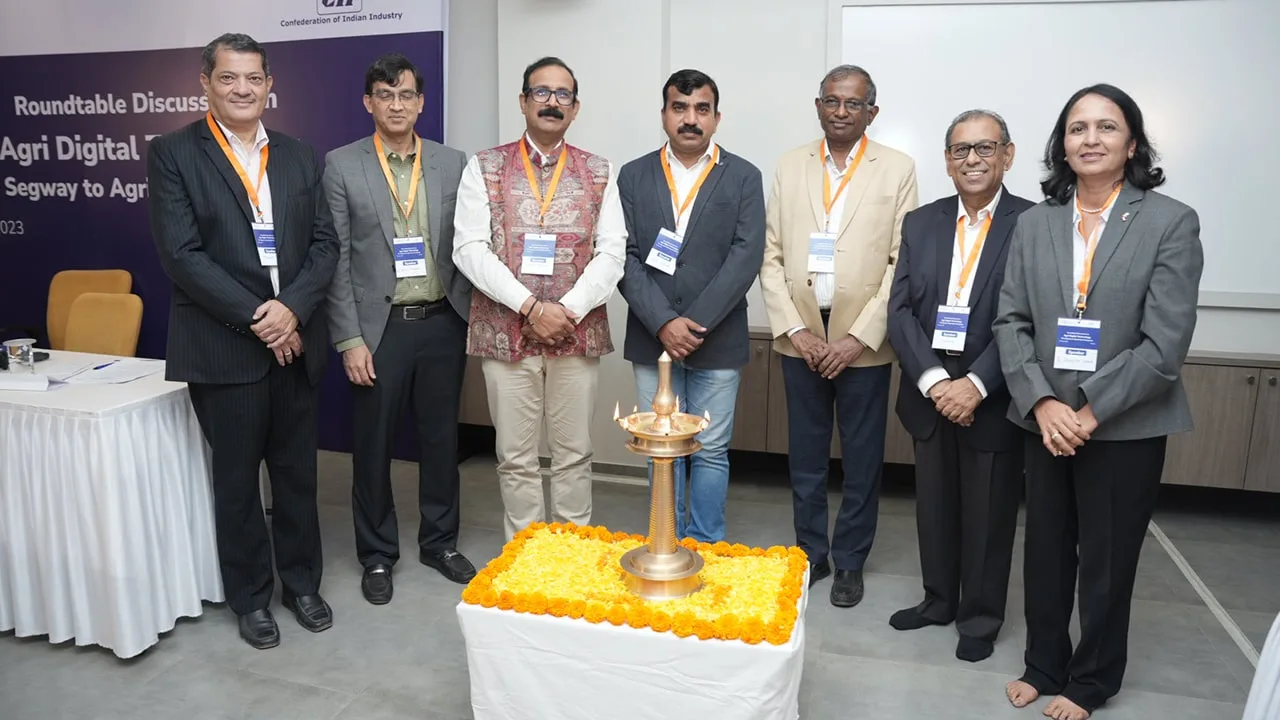
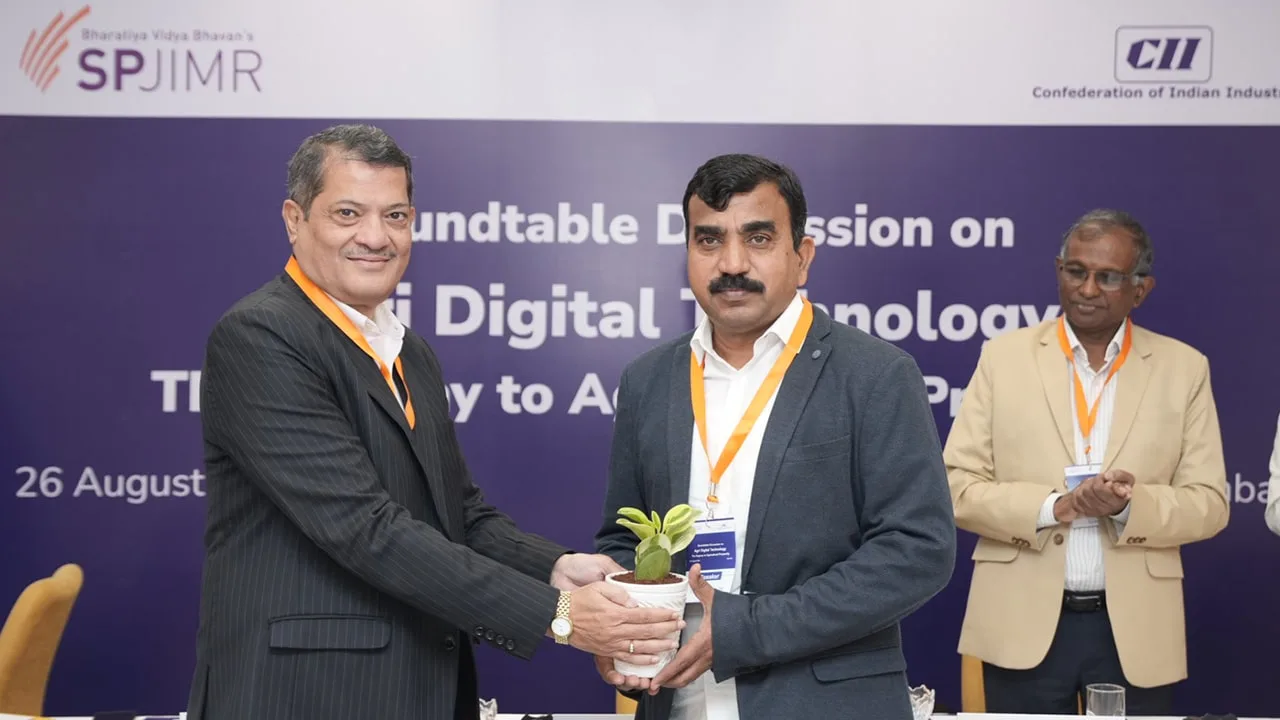
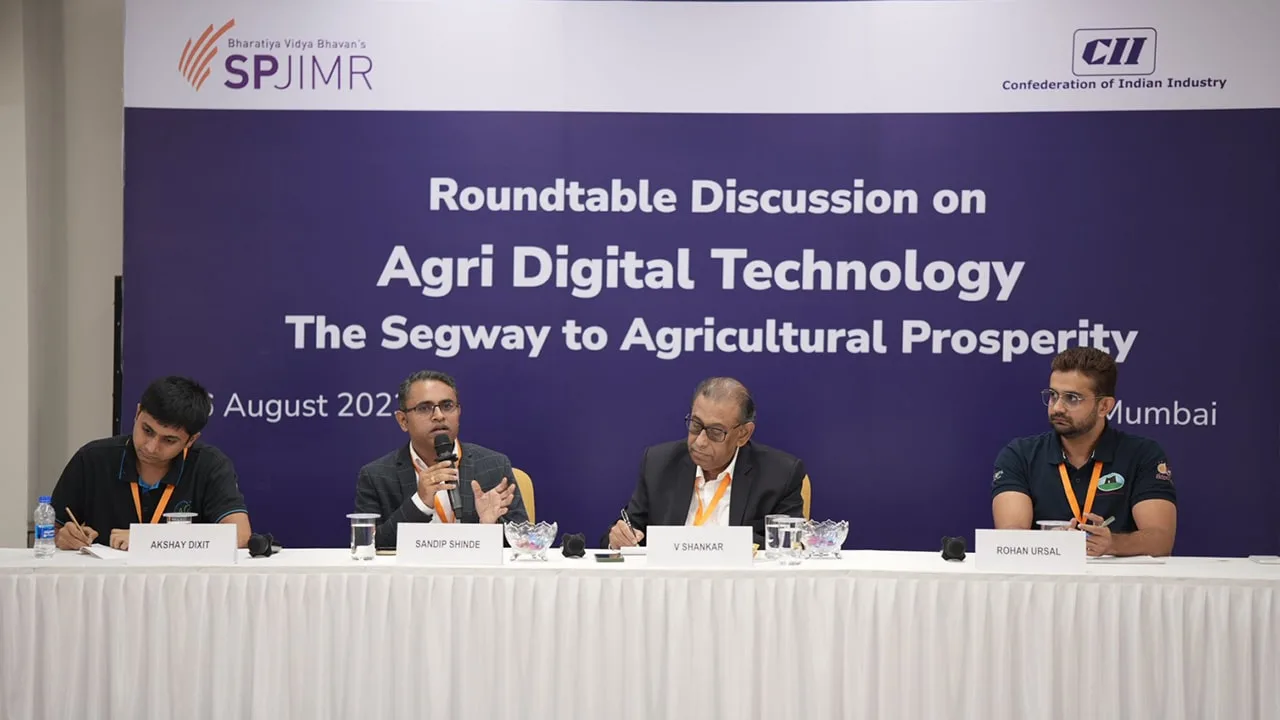
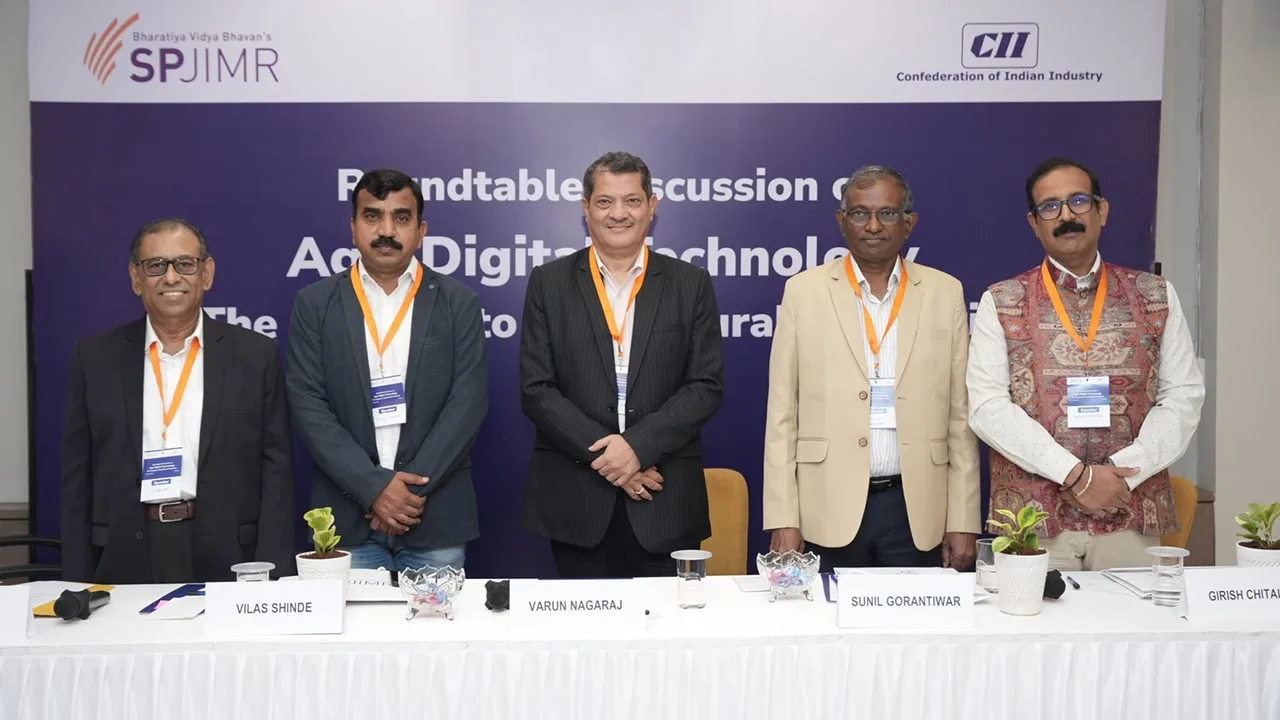
Agriculture and its allied sectors have been one of the largest employment providers in India, where almost seventy crores of the population are still dependent on the sector. The past interventions in agriculture show how important the development of agriculture is for India, to make the country self-sufficient in food production. We can proudly say that the food grain production in India is at an all-time high, having grown sevenfold since the fifties.
Though the production numbers have increased, certain factors affect the productivity and growth in farmers’ income, as the majority of the Indian farmers are small and marginal farmers. The question is ‘how to transform agriculture from sustenance farming to a vibrant agribusiness’. Technology can be an answer to this question as it can play a lead role in the development of the agriculture sector, with ‘digital’ being a key enabler.
Against this backdrop, the Taskforce on Agriculture of CII Maharashtra, in association with SPJIMR’s Centre for Impact in Sustainable Development (CISD), organised a RoundTable discussion on “Agri Digital Technology – The Segway to Agricultural Prosperity,” which aimed to explore the pivotal role of digital technology in driving agricultural prosperity. The conference delved deep into the potential technologies and some of the challenges and opportunities, along with the key factors that can accelerate the growth of digital technology in the agriculture sector including:
- Agritech: The progress and the road ahead
- Pilot for industry in the agritech segment
- Farmers expectations, a vital central point
- Understanding their challenges and working on possible solutions
- Developing talent in agriculture at Execution level
- Encouraging dignified livelihoods in agriculture
- Prepare possible policy document
The event brought together farmer-producer organisations (FPOs), agri-start-ups, enterprises, NGO’s and industry experts, including Mr Vilas Shinde, Convener of Taskforce on Agriculture – CII, Dr S. D. Gorantiwar, Director of Research at Mahatma Phule Krishi Vidyapeeth, Rahuri, Mr Girish Chitale, Co-Convener of CII Maharashtra State Taskforce on Agriculture & Director at B G Chitale Dairies Pvt Ltd, Prof. Varun Nagaraj, Dean, SPJIMR and Mr. V Shankar, Executive in Residence, SPJIMR CISD. Conversations revolved around the integration of digital technology and agriculture, emphasising the importance of talent, capital, technology, and policy alignment. The event highlighted India’s growing agritech startup landscape and the role of the agriculture sector in adopting many more emerging digital solutions.
The event consisted of two enlightening sessions:
Session I: Role and Progress of Agri Digital Technologies, Future of Digitech
Moderated by Mr. V Shankar, Executive-in-Residence at SPJIMR’s Centre for Innovation in Sustainable Development, this session featured insights from key speakers:
- Mr. Rohan Ursal, Chairman & Managing Director, Purandar Highlands Farmers Producer Company Ltd.
- Mr. Sandip Shinde, Centre Head – Digital Social Innovation, TCS Foundation
- Mr. Akshay Dixit, Director, Vestogo Innovations
Session II: Challenges & Opportunities in Agri Sector & Policy Reforms
Moderated by Mr Girish Chitale, Co-Convener of CII Maharashtra State Taskforce on Agriculture & Director at B G Chitale Dairies Pvt Ltd, this session involved discussions by:
- Mr. Akshay Dixit, Director, Vestogo Innovations
- Ms. Bhawna Nirmal, Head-Business Development, Agri-Entrepreneur Growth Foundation
- Dr. Sangita Ladha, Business Director, Rivulis Irrigation India Pvt. Ltd
Role of technology- What are some other enablers?
The conference initiated the discussions on how digital technology can be a ‘game changer’ in changing the face of Indian agriculture, and how it can contribute to making agriculture, a vibrant agri-business. The development of new technologies in the sector needs to be combined with sustainability, tailoring to the Indian agriculture scenario instead of imitating others. The innovations in the agritech sector can be seen in different segments of the agriculture value chain, right from the pre-harvesting stage to the post-harvest stage. This includes the application of precision technology, the Internet of Things- water management, soil parameters, etc. AI- sensors and tools using AI will help to predict insect and pest attacks, aid in growing the right crop varieties, and Robotics, drone technology can improve productivity. Digital technology will also contribute immensely to intensifying crop insurance and cater to financial needs. One of the major issues that the Indian agriculture sector faces is ‘climate change’, which has to be addressed through climate-smart agriculture, technologies like regenerative farming, and focusing on soil health. However, 360-degree technology development is needed in the agriculture sector. Most of the innovations in the agritech industry are happening in streamlining the supply chain aspect of the value chain and marketplaces and there is a need for more investments in deep science innovations like drone technology, seeds, etc. Along with technology, certain other enablers also can accelerate the sector’s growth, including capital and talent.
What can be the next steps?
These four factors, viz., talent, capital, technology, and policy reforms, need to be strengthened for the next phase of growth. The creation of a complete eco-system with efficiency and standards at the production level, post-harvest, and marketing is crucial. For creating an impact and adoption of technology in the sector, farmers need to be the focus and centre of any action. Innovations need to be co-created with farmers and this will help in translating research and technology to the field, which is currently a gap. Farmers need to be compensated adequately, being the biggest risk takers. Agriculture needs to be introduced as a part of the academic curriculum where subject knowledge will be provided to youngsters in their growing years. This will help create the environment and mindset for Agriculture to be acknowledged as a vibrant business and value-creator.

